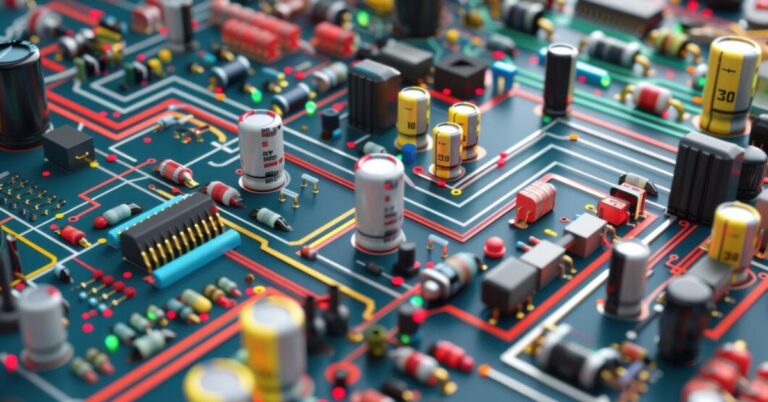How Does 5G Home Internet Fare Against Cable and Fiber Internet?
5G Home Internet is the latest development in the internet world. Many cellular providers now offer it, and I believe it is a viable alternative to traditional broadband connections like cable or fiber internet.
My experience with 5G Home Internet has been quite satisfactory till now. I won’t say it’s a perfect connection, and as a matter of fact, no connection is. But it can be a sound option when you’re hunting for a new internet connection.
Having said that, you’re probably wondering how 5G Home Internet fares against the leading broadband types i.e. cable and fiber internet? Starting from explaining how these connections work, I’ll explain some major differences between these internet connection types.
So, let’s start!
How Do These Connections Work?
In this section, I will discuss different internet technologies and explain how they work.
5G Home Internet
This connection type does not require any cables or wires, as it delivers internet signals via nearby cellular towers. These 5G network towers allow you to wirelessly connect to a 5G home internet service via a fixed receiver.
Similar to cable and fiber internet, 5G Home Internet also utilizes a modem and router, which are responsible for converting radio waves into Wi-Fi and transferring them to connected devices, respectively.
Having said that, you’ll need a SIM card from your provider to enjoy their 5G Home Internet. Plus, as 5G Home Internet is a relatively new technology, its availability is currently limited to major cities only.
Cable Internet
It uses electrical signals to deliver internet to our homes via coaxial cables. Since this technology is also used to deliver TV services, cable internet has an availability of around 85% throughout the country.
The coaxial wires deliver the electrical signals to the modem, which converts them into internet signals and transfers them to a router. Then, the router again converts those internet signals into WiFi and delivers them to the connected devices.
Fiber Internet
This connection type takes help from fiber-optic cables, buried deep under the ground, to deliver the internet via light signals. These signals move in small packets, nearly at the speed of light inside the fiber optic cables, which makes it one of the fastest internet connections available today.
However, fiber-optic availability is much lower than cable internet, as it has only a 43% nationwide availability.
Which Connection Type Is The Fastest?
Here, I will explain which connection type can offer the fastest internet speeds.
5G Home Internet
It is not as fast as cable or fiber internet, and it may also lack reliability. However, 5G Home Internet comes with multiple perks and benefits that fairly compensate for speed and it’s perfect for users on a budget.
The 5G Home Internet speeds you receive largely depend on the plan you subscribe to. Usually, you can easily get internet speeds from 40 Mbps to 300 Mbps. However, the internet speeds may not be consistent, as there are several factors affecting them.
5G Home Internet uses nearby cellular towers to deliver internet. As the user’s distance increases from network towers, the internet speed decreases. But, with unlimited data, no annual contracts, and additional fees for equipment or installation, 5G Home Internet becomes a quality choice.
Cable Internet
It is the oldest technology among the three connections, but it can offer pretty decent and stable internet speeds to cover your online needs. Cable ISPs offer a wide range of internet plans to choose from, that can significantly affect your internet speeds.
Depending on the cable internet plan you’re subscribed to, you can easily get broadband speeds from 100 Mbps to 1.5 Gbps. However, there are multiple factors that can affect internet speeds in a cable connection.
Cable internet users in an area have a shared bandwidth. During peak times, shared bandwidth can cause network congestion or slow down the internet speeds to manage the traffic. Additionally, extreme weather conditions can affect the internet speeds in cable connections.
Fiber Internet
Unlike other connections, only fiber internet is capable of delivering symmetrical internet speeds, i.e., similar upload and download speeds. As I mentioned above, fiber-optic cables use light signals to deliver the internet. As the internet signals move nearly at the speed of light, the latency remains low.
A fiber internet plan can offer speeds from 100 Mbps to 50 Gbps. However, these speeds may also depend on the internet plan you’re subscribed to. Having said that, I believe that even a mid-tier fiber internet plan can offer Gigabit internet, which should be sufficient for an average household with multiple devices.
Other than this, fiber internet connections are less susceptible to network congestion and interference. Also, as fiber cables are buried deep, extreme weather conditions may not significantly affect them.
Cable vs. Fiber vs. 5G Home Internet – A Quick Comparison
Based on different metrics, the table below explains the major differences between these internet connection types:
| Metrics | Cable Internet | Fiber Internet | 5G Home Internet |
| Symmetrical Speeds | No | Yes | No |
| Reliability | High | High | Low |
| Availability | High | Low | Low |
| Data Caps | Yes (With some providers) | No | No |
| Annual Contracts | Yes (With some providers) | No (With some providers) | No (With some providers) |
Should You Get 5G Home Internet?
I believe it is highly subjective whether you should get 5G Home Internet or not. There is no doubt that 5G Home Internet is a solid option for those users who don’t have access to traditional broadband connections like cable or fiber internet.
Its plans are also affordable and offer pretty good speeds to support online needs. And, with no contracts, data caps, and additional fees for equipment or installation, opting for 5G Home Internet is a pretty smart choice.
Frequently Asked Questions
Is 5G Home Internet suitable for gaming and 4K streaming?
Yes, if you’re subscribed to a high-speed plan with good signal coverage, then you can easily play online games or stream 4K content on 5G Home Internet.
What are some famous 5G Home Internet providers?
Verizon, T-Mobile, and AT&T are some of the most famous and reliable 5G Home Internet providers.







